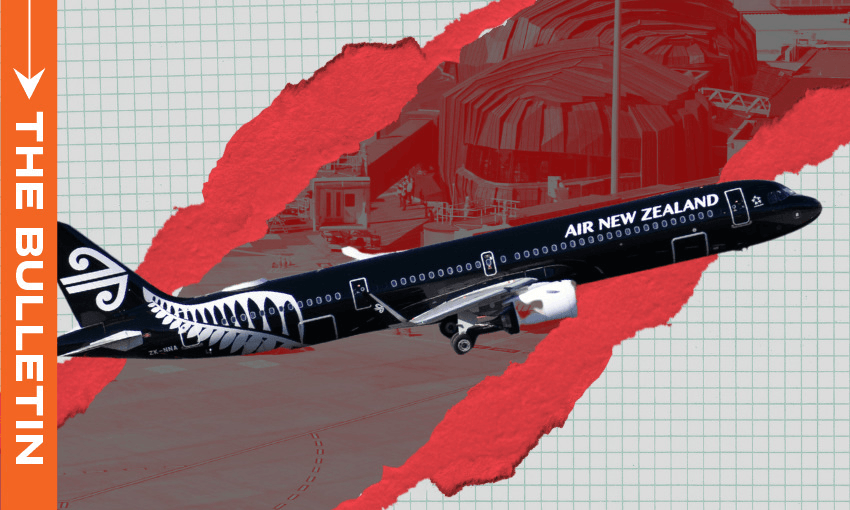Another holiday season, another outcry over the national carrier’s soaring ticket prices – and now calls for action are getting louder, writes Catherine McGregor in today’s extract from The Bulletin.
To receive The Bulletin in full each weekday, sign up here.
A Bulletin tradition returns to the runway
If it feels like complaints about Air New Zealand fares are a perennial feature of The Bulletin, that’s because they are. Former editor Stewart Sowman-Lund wrote on the topic – along with the broader financial pressures on the company – twice last year, inspired initially by Consumer NZ’s push for a Commerce Commission inquiry into airline pricing.
Fares on some routes have jumped by up to 300% over the past few years, putting domestic air travel out of reach for many in our smaller centres. As Consumer NZ’s Abby Damen put it, if you live somewhere like Gisborne or Whangārei, your choices are simple: “grin and bear it – or not fly at all.” Air New Zealand, for its part, last year insisted that the average fare increase over the past five years was closer to 22%, blaming inflation across almost every area of its business.
Holiday prices soar, and tempers with them
Fresh outrage took flight over Easter, sparked by stories like that of Tauranga man Scott Koster, who told RNZ’s Susan Edmunds that it would be cheaper to send his daughter to Los Angeles than back to Wellington. Air NZ defended its dynamic pricing model, suggesting travellers book early or fly at off-peak times – advice many called unhelpful at best. “No-one plans in advance for a funeral,” the Sunday Star-Times’ Andrea Vance wrote pointedly.
In Dunedin, meanwhile, sports groups are warning that crippling travel costs could kill off national tournaments. In response, Air NZ cited bigger forces at play: spiralling labour costs, fluctuating fuel prices, airport levies and a shortage of operational aircraft due to engine maintenance issues. The company is “very sympathetic” to customers facing higher fares, CFO Richard Thomson told the Otago Daily Times’ Matthew Littlewood (paywalled). “But there’s no point in us pricing airfares at less than the cost of delivering the service.”
A fraying bond with the public
In her (paywalled) column, Vance argued that while the company has some valid defences against accusations of price-gauging, its “social licence – which allows Air NZ to get away with a lot – is fraying.” For many New Zealanders, the airline isn’t just another business, it’s a taxpayer-backed symbol of home. That emotional connection is wearing thin, especially on regional routes where there’s no competition and high prices can often feel like exploitation. This week government minister James Meager told the ODT (paywalled) that regional flight reliability and connectivity was his top priority “not only as minister for the South Island, but also as acting minister of transport with responsibility for aviation”.
A Horizon Research survey last year found air travel was ranked the least competitive consumer market in the country, trailing even banking and groceries. Whether or not a ComCom market study ever materialises, Vance warned that the airline’s next CEO will inherit “a grumpy customer base” and a trust deficit that slick marketing alone won’t fix.
New Dreamliners offer a silver lining
Amid the turbulence, Air NZ is celebrating the arrival of its first retrofitted Boeing 787 Dreamliner, fresh from a six-month overhaul in Singapore. The aircraft boasts revamped cabins throughout, including a new tier of business class seats dubbed Business Premier Luxe. It’s a major investment – $500 million across 14 aircraft – but one the airline says will set it apart from competitors like Qantas, whose average fleet age is nearly double, reports the Herald’s Tom Raynel (paywalled).
CCO Jeremy O’Brien called the plane’s touchdown “a huge moment for our people, our customers, and the future of Air New Zealand”. Whether fancier international planes can smooth over domestic anger remains an open question.
